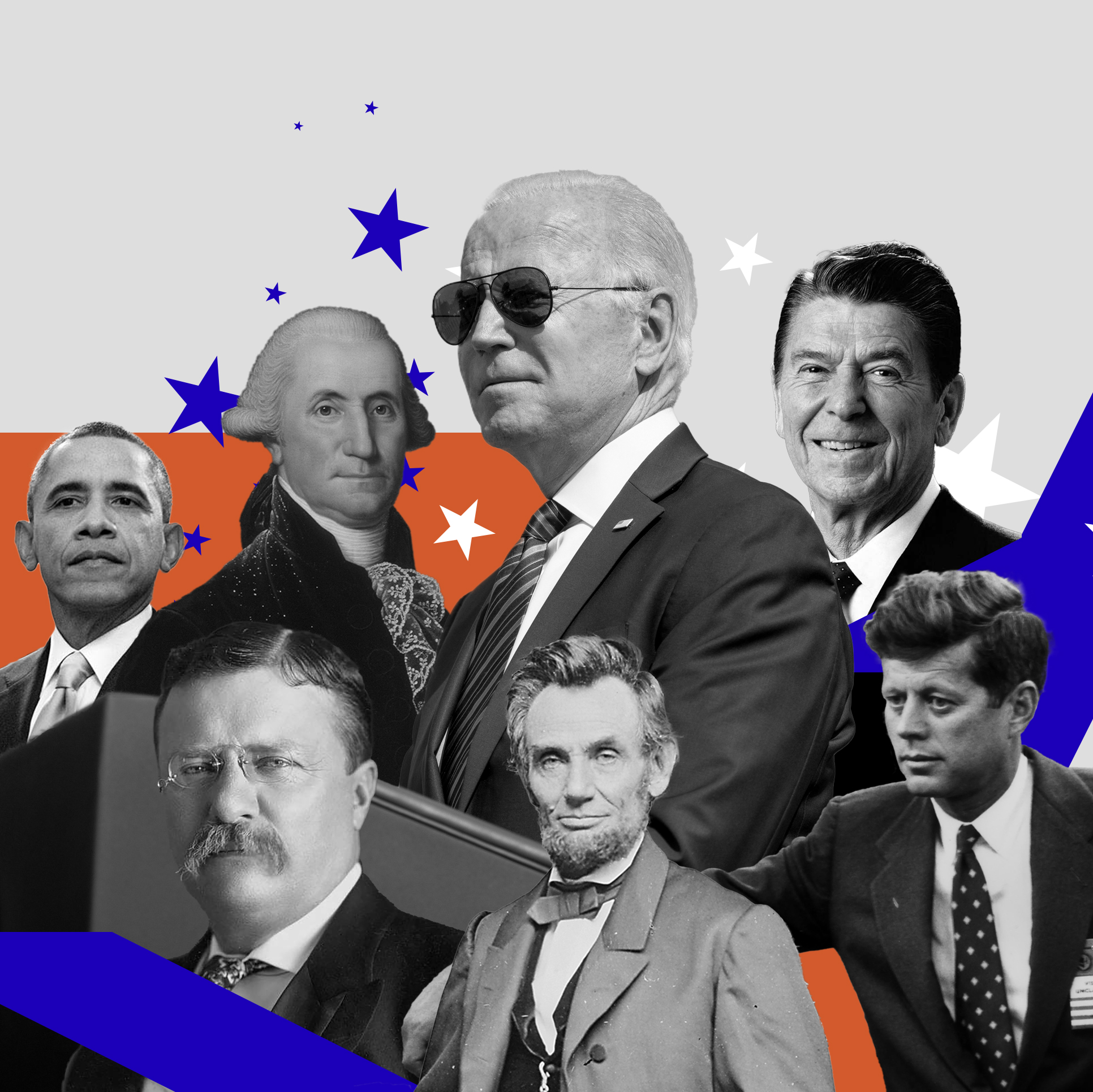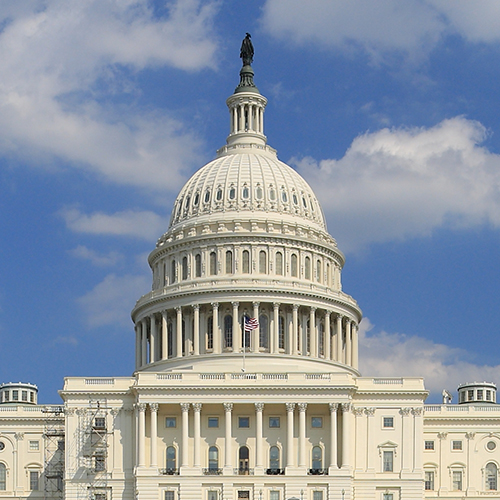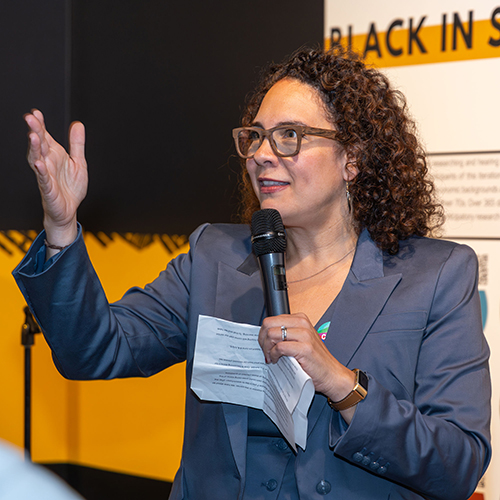Is there such a thing as a “traditional” Arts and Sciences student? The diverse backgrounds of the 2002 Dean’s Medalists would suggest otherwise.
One of the medalists came to the University at age 15, another in her mid-40s. The third is first-generation American. The fourth was UW student body president and homecoming queen. What the four students have in common is a passion for learning.
The Dean’s Medal recognizes the top student in each of the College’s four divisions—arts, humanities, social sciences, and sciences—based on grade point average, difficulty of courses taken, and recommendations from the student’s department.
“These students bring tremendous energy and enthusiasm to their studies,” says David Hodge, dean of Arts and Sciences. “Faculty and fellow students gain enormously from their presence. It’s wonderful to see how they have taken full advantage of what the College has to offer.”
Thomas Carlson, Dean's Medalist in the Sciences
Thomas Carlson is a case in point. He came to the UW at age 15 through the Early Entrance Program (EEP) and never looked back. The hardest part of his UW experience may have been deciding on a major.
“It was clear I would be a math major, but I also loved literature and wanted to do more of that,” explains Carlson, who eventually decided on a triple major in mathematics, English, and computer science. He also briefly considered a drama major and has participated in numerous EEP drama productions as director or actor.
“Thomas’s decision to pursue three majors no doubt keeps him busy, but most often, he gives the impression that these pursuits keep him entertained rather than under stress,” writes David Notkin, Boeing Professor and chair of computer science, in a nomination letter.
Other faculty concur. “I have never met a more talented person,” writes James Morrow, professor of mathematics. “Last year Thomas took the graduate algebra course and was considered the best student in the course—in fact, in a class by himself. He had never taken any undergraduate algebra course before this class. His performance is similar in English and computer science.”
Carlson shrugs off the accolades. He says he’s been in the company of other stellar students—including Rebecca Hendrickson, 2001 Dean’s Medalist and President’s Medalist.
“The mother of one of my friends said I really should transfer to Harvard,” Carlson recalls. “I said, ‘There is a Harvard in the University of Washington.’ I’m really lucky to have had classes with some exceptional students.”
For the past few years, Carlson has been a teacher as well as a student. He has been a teaching assistant for a calculus class in the Honors Program and for an English class in EEP. He’s now a math instructor for EEP. He will continue to teach in the Transition School in the coming year, while studying Greek and Hebrew and participating in community theater.
Carlson’s not sure what will follow. “Given my interests, I’ll probably end up in academia eventually,” he says. “But there’s no rush.”
Roy Bing Chan, Dean’s Medalist in the Humanities
Roy Bing Chan is in a rush to begin graduate school. He’s headed for University of California-Berkeley—on a five-year fellowship—and can’t wait to start.
He’s still in shock about that fellowship. And the Dean’s Medal. And the President’s Medal, which he accepted at Commencement as the University’s top student for 2002. Then again, Chan was amazed that he was accepted into the UW’s Honors Program.
“I went to an inner city high school—Cleveland High School in Seattle—which frames expectations of what you’re worth,” says Chan. “When I got to the UW, I had to get over my self doubt.”
Like Carlson, Chan had always been a math wiz but also loved literature. In high school, a teacher encouraged him to take a comparative literature course through the UW’s Summer Quarter. “I got a 3.9,” he recalls. “It confirmed for me what I wanted to do.”
As a UW student, Chan—who has a fascination with Soviet history—began studying Russian through the Department of Slavic Languages and Literatures so he could read primary documents. He soon was hooked, both by the language and the department, which he describes as "perhaps the best humanities department at the UW." He became a double major in comparative literature and Russian.
It helped that Chan has a natural ability with languages. “Astonishingly, he was able to skip third year Russian and go on to the fourth level, a feat akin to hopping the moon and pushing on to the sun,” writes Willis Konick, associate professor of comparative literature, in his recommendation letter.
Konick has been a mentor to Chan, who hopes to do the same for other students when he becomes a professor. “Willis really took me under his wing,” says Chan. “There were times I didn’t believe in myself at all—but Willis did. I want to be able to do that for other students.”
Suzanne DiCarlo, Dean’s Medalist in the Arts
Suzanne DiCarlo was as surprised as Roy Chan to receive the College’s top honor. “I’m still in shock,” she admits. “I didn’t see it coming.”
But DiCarlo is used to surprises. She planned to go to college years ago but put those plans on hold when she had a child. Once her daughter was “almost out the door,” DiCarlo signed up for one course—a geology class—at Bellevue Community College (BCC). “I’ve always had a passion for the sciences,” she explains. She soon signed up for more science classes.
So how did this science buff at BCC end up as a photography major at the UW?
“I always had the camera around my neck, but I never made the connection,” she says with a laugh. “Eventually friends convinced me to take a photography course. And that’s when things really turned around.”
DiCarlo discovered that she found it “more interesting to photograph geologic formations—and nature in general—than study them,” and she entered the photography program in the UW School of Art.
“The other students have been so accepting of me,” she says. “I’ve never felt that people treated me differently because of my age. I couldn’t have gotten this award if it hadn’t been for the camaraderie.”
That may be true, but photography professor Ellen Garvens suggests a few other reasons for DiCarlo’s College honors, including “noteworthy persistence in the face of logistical and creative challenges.” It seems that DiCarlo, who has become fascinated with aerial photography, spends much of her time leaning out of helicopters, 1,000 feet in the air, to capture the perfect shot.
DiCarlo’s work plays with the idea that natural and man-made formations can be indistinguishable from the air. Response to her photographs has been tremendous. A curator invited to critique a UW photography class asked to have DiCarlo’s work in a recent show. There have been other invitations as well.
“I came to the UW because I wanted to be doing something for the rest of my life that I can be passionate about,” says DiCarlo. “And now I am. Leaving the UW is sad, but there are so many projects I want to do. I’m looking forward to what’s next. It’s so much fun.”
Jasmin Weaver, Dean’s Medalist in the Social Sciences
Jasmin Weaver knows something about the passion DiCarlo describes. It was her passion for affordable education that led her to run for president of the ASUW (Associated Students at the University of Washington)—and win.
“I’ve always been interested in politics,” she says, “but at the UW I fell into it by luck. What drew me in were tuition issues, coming from a Seattle high school and seeing kids who couldn’t afford to come to the UW.”
David Olson, professor of political science, describes Weaver’s ASUW presidency as “one of the most impressive I’ve ever witnessed.” He says, “Here is the daughter of a single parent, for whom access and affordability of tuition is a felt issue. She formed the group ‘Affordable Tuition Now!’ and effectively deployed it for her interest area. This is one of the most impressive efforts at community building among undergraduate students that I have seen.”
While Weaver has been immersed in politics, she’s also made time to complete a triple major in philosophy, political science, and community and environmental planning (CEP). And she’s participated in a host of unusual opportunities at the UW.
For several years, Weaver was part of an ethics team—the Ethics Dawgs—that won a national championship in 2000. She also participated in the Political Science Department’s Legislative Internship Program, serving as an intern to Washington State Senator Jeanne Kohl-Welles. “I was a different person going into that program than I was when I came out,” she says. “It helped me find my voice. I gained a lot of confidence.”
Looking back on her UW experience, Weaver admits that she had doubts when she arrived.
“I really thought the best place for me was a small liberal arts college,” she says, “but my family couldn’t afford that. “Now I think I would have been so much more limited at a small school. This was really the right place for me.”
More Stories

Is This Presidential Campaign Different?
UW History professor Margaret O'Mara provides historical context for this moment in US presidential politics.

Making Sense of This Political Moment
To navigate this momentous election season, Arts & Sciences faculty suggest 10 books about the US political landscape.

Interrupting Privilege Starts with Listening
Personal stories are integral to Interrupting Privilege, a UW program that leans into difficult intergenerational discussions about race and privilege.